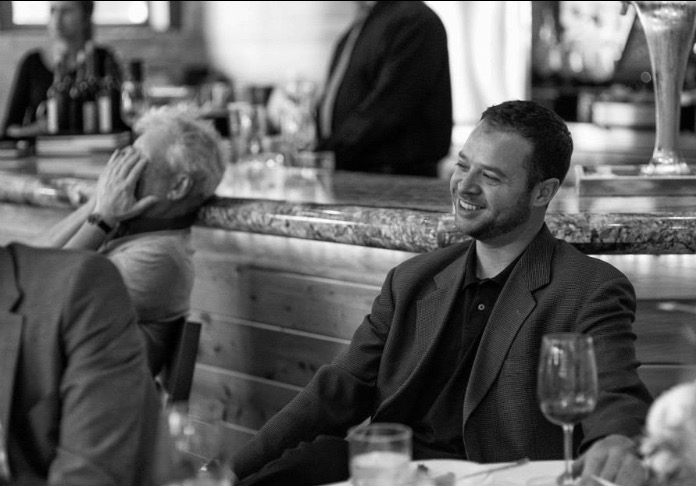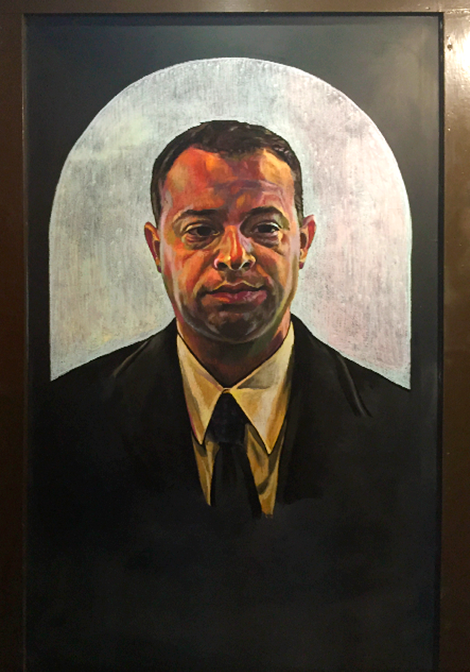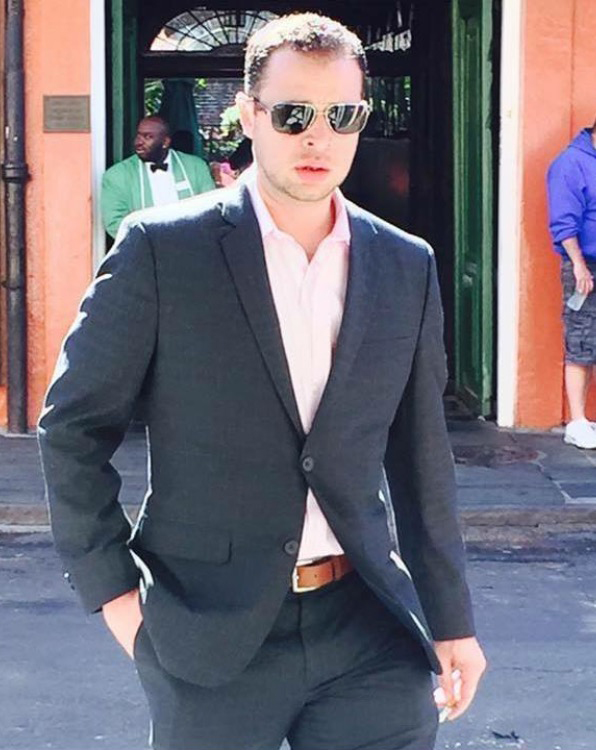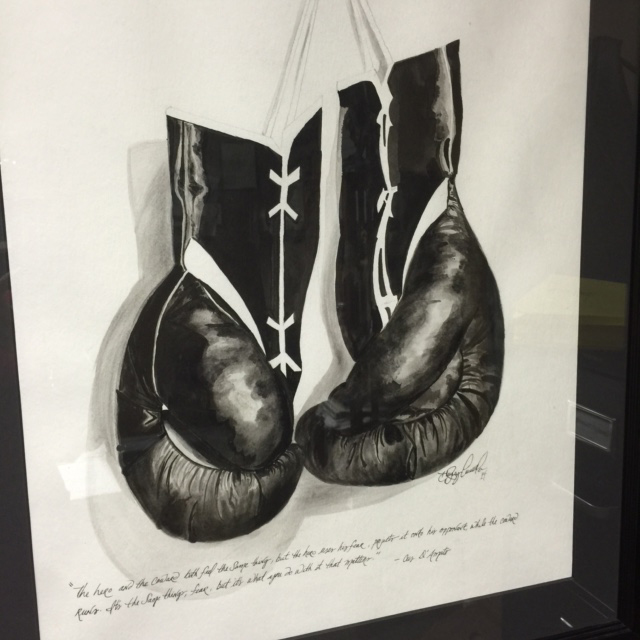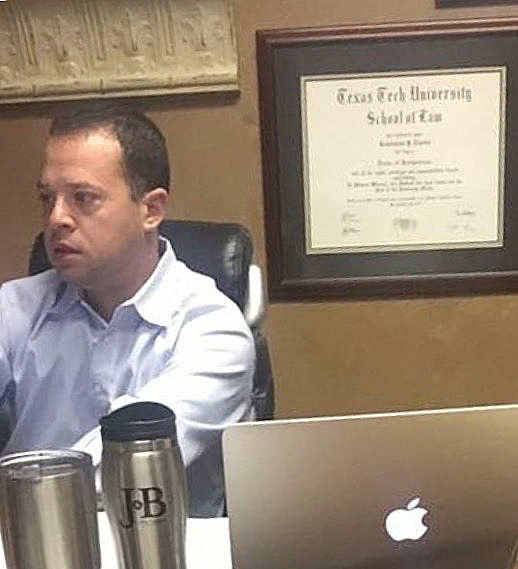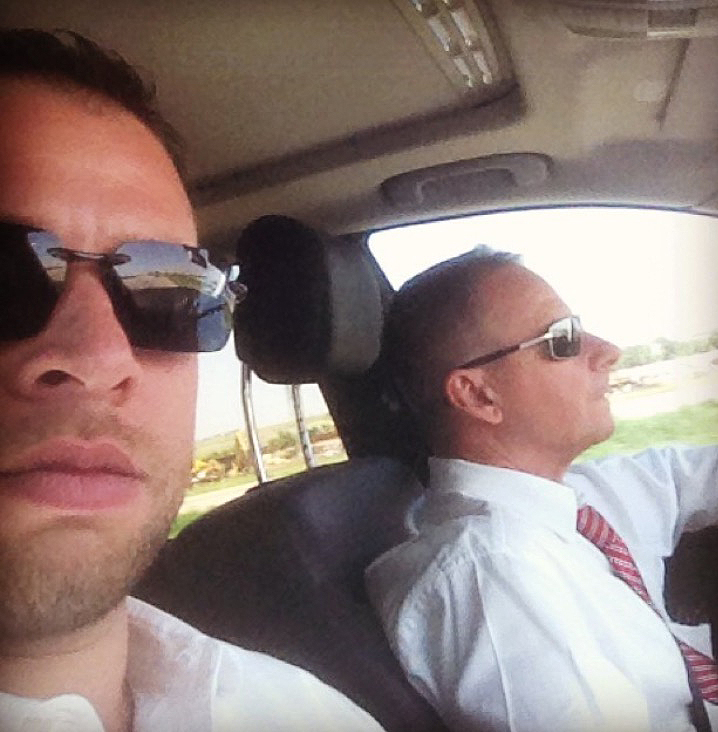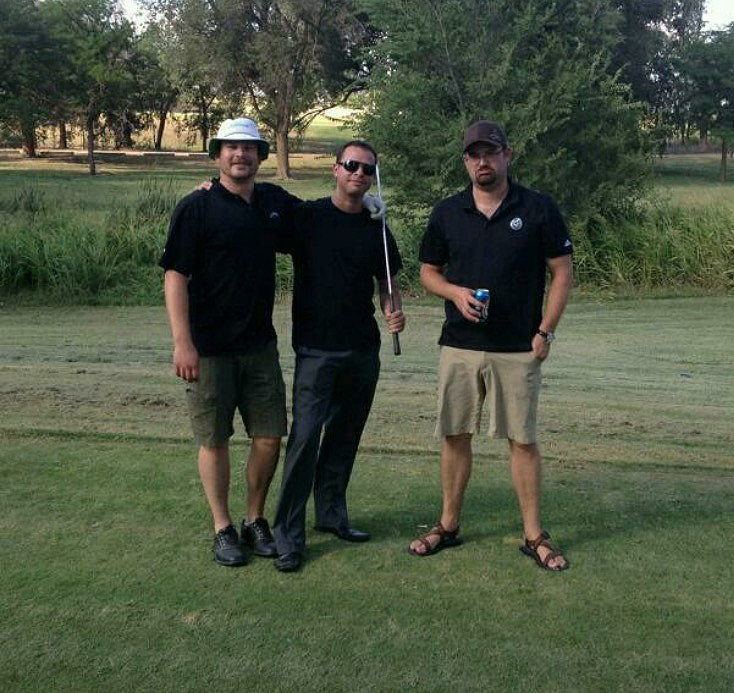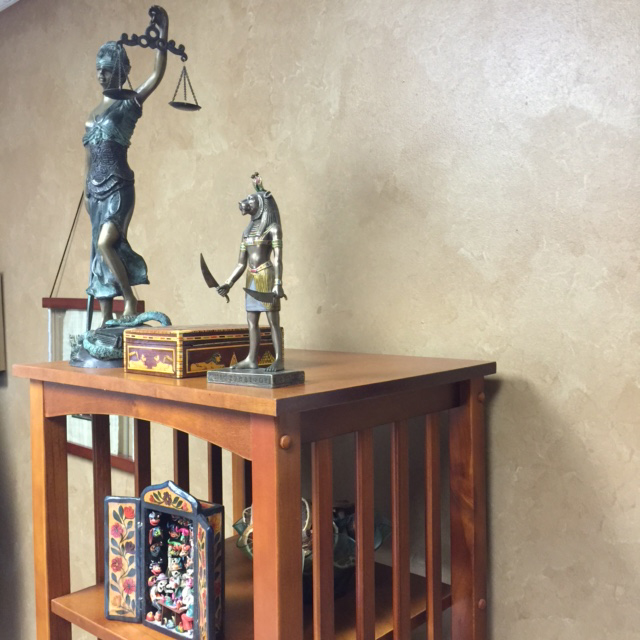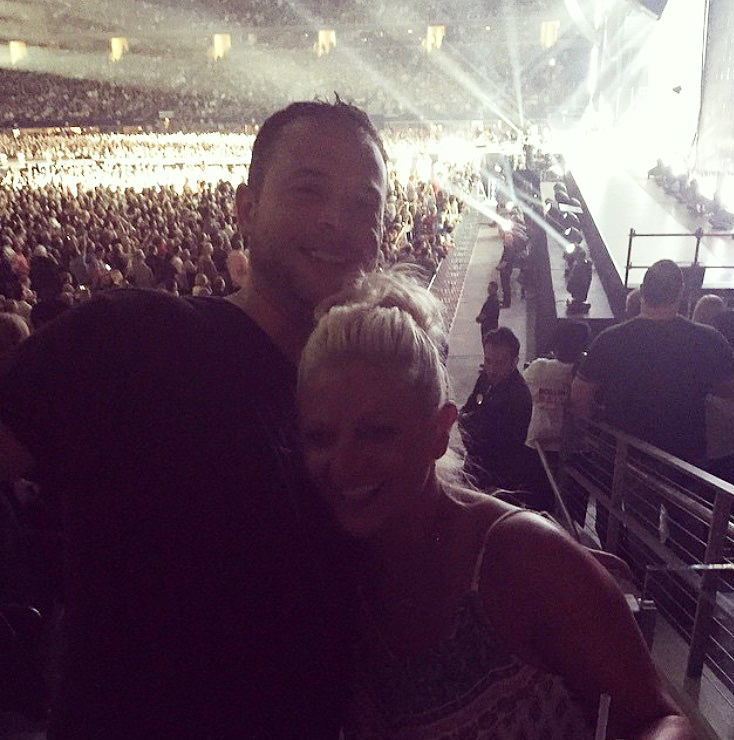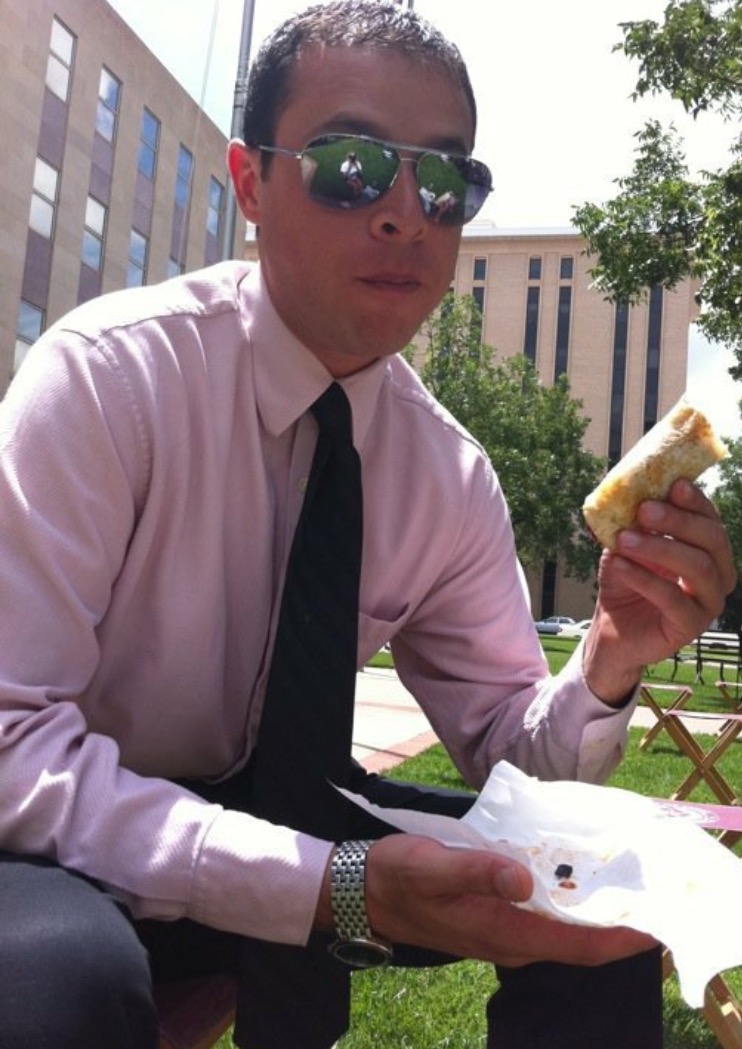Kris Espino
Criminal Defense Attorney at LawKristopher Espino
By the time I graduated from Texas Tech University with a degree in finance, I couldn’t wait to get out of here. Like a lot of kids who grew up in Lubbock, my main ambition in life was to get out of here as soon as I could and never return. So I packed my bags for New York, where I had been accepted into the St. John’s University School of Law in Queens, and set out on my journey to make a billion dollars as a Wall Street lawyer. Before I left town, one of the attorney’s whose office I worked at as a runner pulled me aside and said, “Don’t get up there and think you have to go in a straight line from Point A to Point B. Experience everything and don’t be afraid to follow the journey wherever it wants to take you.”
From the first moment that I arrived, I quickly realized exactly what he was trying to tell me. New York was a kaleidoscope of sights and sounds. When I wasn’t in the library studying for class, you could find me walking through the streets of the city absorbing it’s boundless energy and melting pot culture with every step. School was just as much of an eye opening experience. I found the law endlessly fascinating, and I loved the way the professors were training us to consume large chunks of information and quickly construct them in a way so as to make order out of chaos. It was as if they wanted to re-train our minds to work in the most neutral and efficient way possible.
In any event, between weekends spent taking in the city life and weekdays spent immersing myself in school, there I was at 24 years old having the time of my life.
Then, in the Spring of 2005, I found my way into Professor Michael Simons’ Criminal Law class and my life would never be the same. Professor Simons was a Harvard-educated, former assistant United States attorney in Manhattan and he was absolutely brilliant. He had a way of peeling back the layers of the cases we read in such a way that you could see the complexity of the issues that were at their core, and he did so in such a way that it caused me to question my own assumptions and preconceived notions about the world around me.
One day we discussed a case called The People of the State of California v. Du, in which a 15-year-old girl named Latasha Harlins was shot in the back of the head by the owner of a liquor store who thought Latasha was stealing a bottle of orange juice. The store had reportedly been robbed several times and that prompted Ms. Du’s son to go out and by a snubbed nose revolver with a “hair trigger” off the street to keep at the store for protection. When Latasha approached the counter to pay for her juice, Ms. Du thought she saw Latasha hide something in her backpack and she reached across the counter to grab at the bag. Latasha pushed her away and swung at her. Ms. Du reacted by reaching for the gun and pointing it at her as Latasha walked away. However, she didn’t know about the hair trigger and, either intentionally or by accident, the gun went off and killed Latasha.
My classmates at St. John’s were from all over the world, and the country, and from just about every racial, religious, and socio-economic background you could think of, and we spent the entire class discussing the legal and social ramifications of the ensuing prosecution of Ms. Du. Some people argued she should be locked away forever while others argued it was all a tragic accident and she shouldn’t have to go away at all. We discussed the larger context of the racially-charged Los Angeles of the early 1990’s and what role external social issues should play in the resolution of a case. Some people just voiced the frustration of situations like this in their own lives. Then, with less than five minutes remaining in class, Professor Simons dimmed the lights and played the surveillance video taken from the store that day.
From the time Latasha walked in the door to the time she was dead was less than a minute, and we all just sat there in horrified silence watching the awfulness of the situation play out before our eyes.
When I went home that day I couldn’t shake that video from my mind. I emailed my friends saying, “Whenever someone asks me what kind of law I want to practice I can answer with absolute certainty that I could never be a criminal lawyer on either side of the aisle. Can you imagine having to figure out something like that every day as your job?”
Despite my initial goal of putting my finance degree to use and my declaration to my friends that I couldn’t possibly work in criminal law, the semester rolled on and a few things started to become more clear. First of all, my eyes glaze over when people start talking about money. I know it’s very important that we have accountants and tax lawyers and financial markets, but it’s just not for me. I decided that life is way too short to spend it helping some rich guy get richer. The second conclusion I reached is that what happened in that LA liquor store between Latasha Harlins and Ms. Du was upsetting, complex, horrific, and just too damn important to be left in the hands of the wrong people. I realized that I could imagine myself having to figure out situations like that every day because I really don’t trust anyone else to do it.
Finally, I realized that if I was able to graduate and get my law license that I was going to be able to help a lot of people. I loved New York, but even when I was there I’d find myself checking the Lubbock news websites every morning to see if the farmers were getting rain and doing my best to keep my thumb on the pulse of my hometown. I recognized that there is a lot of work to be done in our community and I wanted to use my education and career to somehow help my fellow West Texans. New York was fantasy camp, but Lubbock was reality.
I realized that – for better or worse – West Texas, and all the people in it, made me who I am. Whether it was the assistant principal who kicked me out of high school, or the teachers who saw a spark in me and motivated me to succeed, close friends I’ve lost or the people I’ve loved, this place is a part of me and it’s where I wanted to be.
So I moved back. In May 2007, I obtained my second diploma from my beloved Texas Tech University. I’ve been defending West Texans ever since then with equal parts passion and precision. I was fortunate enough to work for an excellent lawyer and an even better man named Richard Wardroup. When he closed his practice, I found myself in the office of Rod Hobson, who is like a living breathing tall tale from my youth in the manner of Pecos Bill or Paul Bunyon. Rod showed me that the only limit to the practice of law is your imagination. When I first got here, it felt like all of those hours spent studying and researching and writing were like training for a prizefight and now it was time to get in the ring and rumble.
I love what I refer to as my “816 Main Street family” and I consider myself quite fortunate to genuinely look forward to coming to work every day in an unending pursuit of justice.
Hanging on my office wall is a framed copy of Ralph Waldo Emerson’s poem “Success”. The last two lines read, “To know even one life has breathed easier because you have lived – This is to have succeeded.”
I read those lines every morning when I come to work and I can’t help but think back on the long twisted journey that brought me here and all of the experiences I’ve had along the way. I think about meeting the son of a man whose life sentence was reversed on the strength of an appellate brief that I wrote and how he thanked me with tears in his eyes for bringing his father home. I think of the battles we’ve fought in the courtroom against seemingly impossible odds and the electric catharsis of hearing the foreperson of a jury read aloud the words, “not guilty.” I think about those times when a mother hugged me after I told her “your son’s free.” I think about all of the joy and laughter, long nights and early mornings, and how I’ve managed to do it all on my terms. I’ll think of these things and then think back to my friend’s advice before to experience everything and not worry about going from Point A to Point B in a straight line, and I can’t help but feel like I’ve succeeded.

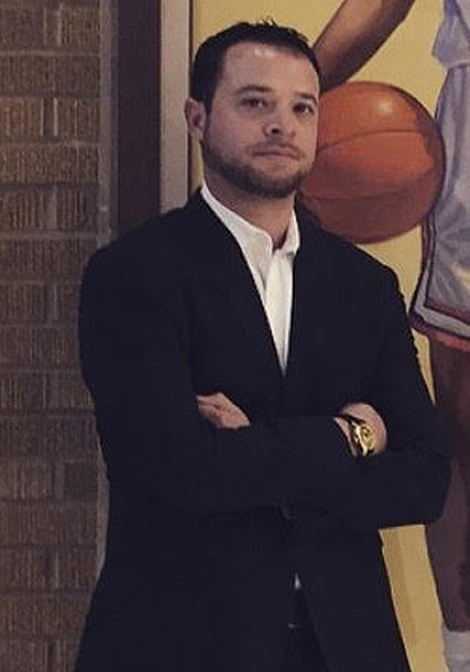
Kristopher Espino

By the time I graduated from Texas Tech University with a degree in finance I couldn’t wait to get out of here. Like a lot of kids who grew up in Lubbock my main ambition in life was to get out of here as soon as I could and never return. So I packed my bags for New York where I had been accepted into the St. John’s University School of Law in Queens and set out on my journey to make a billion dollars as a Wall Street lawyer. Before I left town, one of the attorney’s whose office I worked at as a runner pulled me aside and said, “Don’t get up there and think you have to go in a straight line from Point A to Point B. Experience everything, and don’t be afraid to follow the journey wherever it wants to take you.”
From the first moment that I arrived I quickly realized exactly what he was trying to tell me. New York was a kaleidoscope of sights and sounds and when I wasn’t in the library studying for class you could find me walking through the streets of the city absorbing its boundless energy and melting pot culture with every step. School was just as much of an eye opening experience. I found the law endlessly fascinating, and I loved the way the professors were training us to consume large chunks of information and quickly construct them in a way so as to make order out of chaos. It was as if they wanted to re-train our minds to work in the most neutral and efficient way possible.
In any event, between weekends spent taking in the city life and weekdays spent immersing myself in school, there I was at 24 years old having the time of my life.
Then, in the Spring of 2005 I found my way into Professor Michael Simons’ Criminal Law class and my life would never be the same. Professor Simons was a Harvard-educated former assistant United States attorney in Manhattan and he was absolutely brilliant. He had a way of peeling back the layers of the cases we read in such a way that you could see the complexity of the issues that were at their core, and he did so in such a way that it caused me to question my own assumptions and preconceived notions about the world around me.
One day we discussed a case called The People of the State of California v. Du, in which a 15-year-old girl named Latasha Harlins was shot in the back of the head by the owner of a liquor store who thought Latasha was stealing a bottle of orange juice. The store had reportedly been robbed several times and that prompted Ms. Du’s son to go out and by a snubbed nose revolver with a “hair trigger” off the street to keep at the store for protection. When Latasha approached the counter to pay for her juice, Ms. Du thought she had seen her hide something in her backpack and she reached across the counter to grab at the bag. Latasha pushed her away and swung at her. Ms. Du reacted by reaching for the gun and pointing it at her as Latasha walked away. However, she didn’t know about the hair trigger and, either intentionally or by accident, the gun went off and killed Latasha.
My classmates at St. John’s were from all over the world, and the country, and from just about every racial, religious, and socio-economic background you could think of, and we spent the entire class discussing the legal and social ramifications of the ensuing prosecution of Ms. Du. Some people argued she should be locked away forever while others argued it was all a tragic accident and she shouldn’t have to go away at all. We discussed the larger context of the racially charged Los Angeles of the early 1990s and what role external social issues should play in the resolution of a case. Some people just voiced the frustration of situations like this in their own lives. Then, with less than five minutes remaining in class Professor Simons dimmed the lights and played the surveillance video taken from the store that day.
From the time Latasha walked in the door to the time she was dead was less than a minute, and we all just sat there in horrified silence watching the awfulness of the situation play out before our eyes.
When I went home that day I couldn’t shake that video from my mind. I emailed my friends saying, “whenever someone asks me what kind of law I want to practice I can answer with absolute certainty that I could never be a criminal lawyer on either side of the isle. Can you imagine having to figure out something like that every day as your job?”
The semester rolled on and, despite my initial goal of putting my finance degree to use and my declaration to my friends that I couldn’t possibly work in criminal law, a few things started to become clear to me. First of all, my eyes glaze over when people start talking about money. I know it’s very important that we have accountants and tax lawyers and financial markets, but it’s just not for me. I decided that life is way too short to spend it helping some rich guy get richer. The second conclusion I reached is that what happened in that LA liquor store between Latasha Harlins and Ms. Du was upsetting, and complex, and horrific, and just too damn important to be left in the hands of the wrong people. I realized that I could imagine myself having to figure out situations like that every day because I really don’t trust anyone else to do it.
Finally, I realized that if I was able to graduate and get my law license that I was going to be able to help a lot of people. I loved New York, but even when I was there I’d find myself checking the Lubbock news websites every morning to see if the farmers were getting rain and doing my best to keep my thumb on the pulse of my hometown. I recognized that there is a lot of work to be done in our community and I wanted to use my education and my career to somehow help my fellow West Texans. New York was fantasy camp, but Lubbock was reality.
I realized that for better or worse West Texas and all the people in it made me who I am. Whether it was the assistant principal who kicked me out of high school, or the teachers who saw a spark in me and motivated me to succeed, or close friends I’ve lost, or the people I’ve loved, this place is a part of me and it’s where I wanted to be.
So I moved back and in May 2007 I obtained my second diploma from my beloved Texas Tech University. I’ve been defending West Texans ever since then with equal parts passion and precision. I was fortunate enough to work for an excellent lawyer and an even better man named Richard Wardroup, and then when he closed his practice I found myself in the office of Rod Hobson, who is like a living breathing tall tale from my youth in the manner of Pecos Bill or Paul Bunyon. Rod showed me that the only limit to the practice of law is your imagination. When I first got here it felt like all of those hours spent studying and researching and writing were like training for a prizefight and now it was time to get in the ring and rumble.
I love what I refer to as my “816 Main Street family” and I consider myself quite fortunate to genuinely look forward to coming to work every day in an unending pursuit of justice.
Hanging on my office wall is a framed copy of Ralph Waldo Emerson’s poem, “Success,” and the last two lines are, “To know even one life has breathed easier because you have lived – This is to have succeeded.”
I read those lines every morning when I come to work and I can’t help but think back on the long twisting journey that brought me here and all of the experiences I’ve had along the way. I think about meeting the son of a man whose life sentence was reversed on the strength of an appellate brief that I wrote and how he thanked me with tears in his eyes for bringing his father home. I think of the battles we’ve fought in the courtroom against seemingly impossible odds and the electric catharsis of hearing the foreperson of a jury read aloud the words, “not guilty.” I think about those times when a mother hugs me after I tell her “Your son’s free.” I think about all of the joy and laughter and the long nights and early mornings, and how I’ve managed to do it all on my terms. I’ll think of these things and then think back to my friend’s advice before to experience everything and not worry about going to Point A to Point B in a straight line, and I can’t help but feel like I’ve succeeded.


